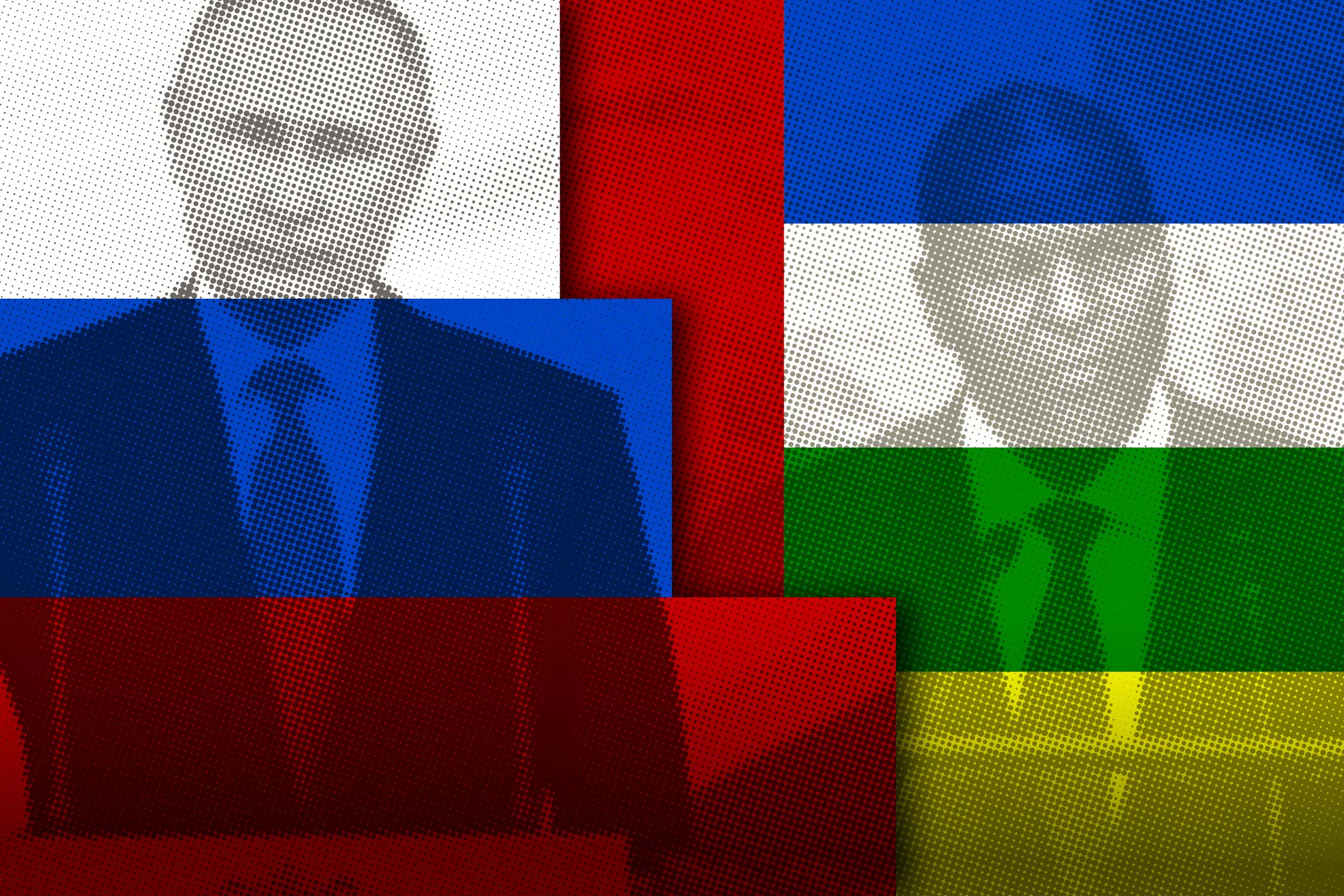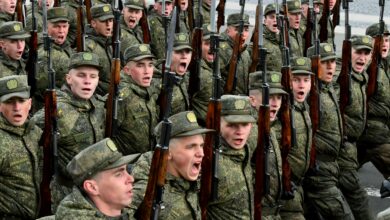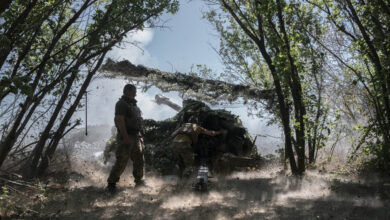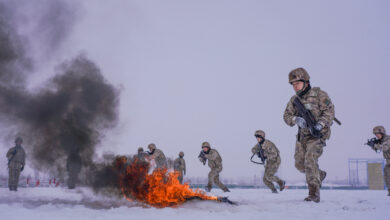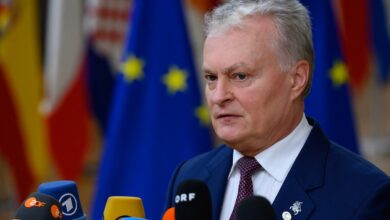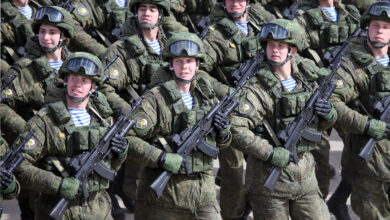Expanding global footprint: Russia builds on Syria experiments in Central Africa
Kiril Aramov and Ruslan Trad take an in-depth look at Russia’s expansion of its burgeoning hybrid state, as it moves private military contractors into the Central African Republic
By Kiril Avramov and Ruslan Trad
The recent news and subsequent investigative analysis regarding the nature and scope of the military cooperation between Russia and the Central African Republic reads like a sensation but actually should not come as a surprise at all for most seasoned Russia watchers. The shipment of Russian light arms and munitions along with five military and 170 civilian instructors to CAR upon President Faustin Archange Touadera’s request after his 2017 meeting with Russian Foreign Minister Sergey Lavrov in Sochi should be perceived as strategic maneuvering and messaging in several important aspects.
The first is that the provision of armaments, special forces and possibly mercenaries deployed under the guise of civilian instructors from Russia to CAR is a part of an emerging trend that stretches from Libya and Egypt through Sudan and possibly other African countries.
Second, it signals a significant shift in the Russian approach outside the “near abroad.” If in the cases of the former Yugoslavia, Eastern Ukraine and most notably Syria, the deployment of private military contractors and their interaction with regular forces on the ground was an experiment to see how this novel hybrid tool will perform in augmentation of the post-Soviet military and foreign policy of the Russian state, then the current African deployment represents a “standardization” phase of the model.
Third, it seems that the offer of narrow PMC-special forces-local client interaction and deployment undergoes a certain evolution towards an expansionist approach in the sense that Russian interventions come in a wider “package deals” beyond ordinary military diplomacy. These include not only weapons systems and munitions sales but also the provision of security, military and civilian personnel along with political advisors, better known in Russia as “political technologists” attached to the clients’ top decision-makers.
In this manner, the intervention covers more aspects of the client regime’s needs that go beyond singular security interventions, as the package deals include Russian weapons and munitions, private mercenaries and political advisors that could execute their own version of psychological warfare (so-called information warfare mercenaries) on behalf of the client regime whose interests coincide with those of Kremlin, as well as a platform of commercial interaction between the client regime and the oligarchical interests close to the Kremlin.
In other words, it represents a perfect platform for the Russian “hybrid state” to extend its outreach abroad and replicate multiple interactions with illiberal regimes that mimic the internal dynamics of Russian socio-political and economic model under President Vladimir Putin.
It is the export of the quintessential core model of the hybrid state and its peculiarities within the scope of the old Soviet sphere of influence and its client states where the boundaries of the powerful post-Soviet private interests, organized crime and the state itself are blurred or non-existent. The export of this peculiar hybrid brand is done under the thin ideological disguise of global support for national sovereignty and upholding of stability, as a total antecedent of the “liberal mess” created by the West and the U.S. in particular.

If on the supply side the offer is one of package deals (export of state-sponsored and private enterprise advanced “services” that cover the entire spectrum from mercenary provision and political warfare support for the execution of opaque business deals), then on the demand side there is a rising interest from multitude of clients that prefer the “no questions asked, no further strings attached” approach. They see it as gaining not only Russian military supplies, mercenaries, instructors and political advisers but rather a purchase of a peculiar form of contemporary Russian “insurance policy,” one that provides additional guarantees for the survival of regimes and their leadership in cases of “Western inspired” attempts at regime change.
The quest to gain such insurance fits nicely with the overall Russian conspiratorial rhetoric regarding the global role of the West, where the regimes in question are actually victimized by subversive plotting from abroad with local “fifth column” help and any measures deemed “defensive,” whether aimed at the home population or at actors abroad, are permitted.
In other words, the gloves are off in the name of sovereignty and stability even if that means the deployment of sharp instruments such as foreign mercenaries operating on home soil.
Central African Republic: Part of an emerging “package deal” trend?
The details and peculiarities of Russia’s CAR involvement might provide illustrative insights into the dynamics of exporting this specific Russian state sponsored and/or private entity interaction model that aims to project power with limited exposure abroad. It also highlights the classic features of the potential of operational deniability that is used in wider African and Middle Eastern contexts.
On the supply side of the deal the intent and interests are quite clear, namely advancing Russian arms exports into new or rediscovered African markets via an initial “free” or loan-based delivery that draws on Russia’s accomplishments in Syria; establishing a strategic outpost that allows Russia to counterbalance China’s growing ambitions on the African continent, thus showing that it should not be treated as a “junior partner” in the Sino-Russian tandem; and last but not least, upsetting France in what it deems to be its own backyard at relatively low cost and minimized risk of exposure.
In addition, the window of opportunity that the whole operation provides allows for future financial sustainability, as the deployment of Russian personnel tends to be close to mineral-rich areas of an impoverished and war-torn country.
In sum, the initial Russian calculation is to kill a whole flock of birds with one precise stone throw.
On the opposite demand side of the deal the intent also seems to be rather clear – maintenance and consolidation of power in an embattled regime via the age-old tactic of inviting a foreign power to back up and boost local hard power resources, but also provision of personal security and advice for the command-and-control center that is to be protected and isolated from evolving domestic threats.
If these supply-demand dynamics are viewed in the context of Russia’s involvement in the Central African Republic it becomes obvious that the model follows a familiar pattern, as demonstrated in Syria. Telling signs detected via scrutiny of the scarce open source information reveal the Russian modus operandi in extending its state power projection outside its borders via the described elements of the package deals, including civilian instructors that most likely belong to PMCs and are usually ex-special operators with strong ties to Russian civilian and military intelligence agencies.
A closer look at the particular case of CAR yields most of the features necessary for execution of a package deal that combines all of the elements – arms sales, the provision of state military advisors, civilian instructors, and a personal security detail for top political decision-makers, going beyond a simple weapons deal or even one-time mercenary unit deployment.
Touadera’s stealth visit to Sochi in October 2017 was followed by the partial lifting of a United Nations embargo that has three times allowed for armaments delivery (December 2017 and February and April 2018), likely in exchange for mining and diamonds concessions granted solely by Touadera without parliament’s approval. This seems to follow the pattern of politically motivated gas and oil deals executed by Bashar al-Assad’s government in Syria, where both he and the Russian side had a lot to gain: for Assad it meant acquiring an additional revenue source to support the regime’s stability, and a convenient platform was established for exchanging political favors between oligarchic operators of large economic enterprises and their respective political leaders.
Upon the arrival of Russian military and civilian personnel in Bangui, several sources reported that their deployment was far from transparent, and followed another familiar pattern, namely in smaller groups, occasionally with forged papers, reportedly disguised as private security companies registered in countries outside Russia.
That would be a logical approach, as on an operational level any traces back to Russia need to be concealed to ensure official deniability, and to obfuscate precise information about the exact number and composition of the group deployed.
This follows the best practices of the Soviet maskirovka (i.e. military disguise), given that this year the Russian government with the overwhelming support of the siloviki (members of the security and military forces and the politicians who rose from their ranks) issued yet another negative review of a proposal to legalize PMCs, thus recognizing their existence but rendering them technically illegal.
Будни российской ЧВК в Судане (голос за кадром). Не Южном, как анонсировалось ранее, а просто в Судане. На фиг нужен Южный, у него и выхода к морю нет. pic.twitter.com/qoSQ9I3ben
— Александр Коц (@sashakots) December 12, 2017
The reported mode, scope of engagement and activities also should not be a surprise, as Russian personnel have engaged in discreet efforts to engage opposition forces near the Sudanese border (another country with a Russian presence), well outside the scope of arming and training designated CAR battalions, as well as swift efforts to secure unlimited access and seal off Touadera from outside threats and influence. Having the president’s ear, coordinating his personal security detail and acting as a liaison between CAR’s top political decision-makers and the economic and defense establishment in Russia puts the advisors in a superb position to collect intelligence and monitor and influence local politics.
Based on this package multi-functionality it is possible to decipher the role of advisors in various interventions and activities, such as those observed in the 3rd arrondissement of the capital Bangui, where violence has surged in recent months.

The presence of Russian personnel and their activities creates a sentiment that aligns well with the current Russian foreign policy worldview that is based on a paranoid fear of plots and subversion created by the West and designed to throw into turmoil and undermine the sovereignty of non-Western states. It certainly echoes in the words of Touadera’s local advisers that voice their fear of a Western-sponsored coup aiming to bring down the president from power.
The lack of opportunity to firmly consolidate political power and the fear of outside coup engineering make Touadera a perfect client for Russian “insurance,” one that would provide guarantees for his survival. The insurance package includes weapons, state and non-state personnel, a prime platform for murky business deals and ultimately a form of personal and regime protection from Russia, the resurgent prime backer of illiberal and autocratic regimes. It also guarantees a reserved junior-league spot in the illiberal “club of multipolarity.”
In search of global “package” distribution
In conclusion it is important to underline that the deployment of Russian PMCs in multiple countries as a foreign policy tool represents an integral part of a larger emerging trend, one that signifies a policy shift in search of global engagement with regimes that seek stability, cheer for anti-Western “patriotic multiculturalism,” deem themselves embattled, and firmly bet on autocratic methods for power maintenance.
This club of countries prefers to deal with modern Russia simply because there are no additional questions asked or any unnecessary strings attached – just good old-fashioned business.
In turn, the club membership can expect a wider menu that ranges from weapons to private military and civilian personnel without any higher expectation from the local power stakeholders. For these regimes this particular Russian approach holds not only ideological but opportunistic appeal, as for them it is easier to maintain transactional relationships with the Kremlin, rather than invest efforts to uphold higher standards of accountability in their local mode of governance. Thus, there should be little surprise at the current Russian efforts from Afghanistan and Syria, through Lebanon and Libya all the way to Eastern and Central Africa.
Indeed, the Russian offensive stretches much further beyond Africa and can be detected as far as the Philippines.
So next time the news breaks out about new Russian arms sales or military and civilian assistance to a country that does not make regularly the global headlines, make sure to watch closely for an unusual presence, as the Kremlin surely has recognized the high utility value in deploying its own private military contractors, as a powerful “grey zone” tool in distant theaters.
An experimental playground: The footprint of Russian private military companies in Syria
 Dr. Kiril Avramov is a post-doctoral fellow at the Intelligence Studies Project at the University of Texas at Austin. He is an Assistant Professor of Political Science at the Department of Political Science and former Vice-Rector of the New Bulgarian University in Sofia and a former Senior Fulbright Visiting Researcher at CREEES, UT Austin, Texas.
Dr. Kiril Avramov is a post-doctoral fellow at the Intelligence Studies Project at the University of Texas at Austin. He is an Assistant Professor of Political Science at the Department of Political Science and former Vice-Rector of the New Bulgarian University in Sofia and a former Senior Fulbright Visiting Researcher at CREEES, UT Austin, Texas.
Follow him on Twitter: @avramovok.

Ruslan Trad is a freelance journalist and analyst with over ten years’ experience covering and analysis of MENA, Balkans and Turkey regional issues; co-founder of De Re Militari Journal; and author of the book “The Murder of a Revolution” (2017).
Follow him on Twitter: @ruslantrad.
All views and opinions expressed in this article are those of the authors, and do not necessarily reflect the opinions or positions of The Defense Post.
The Defense Post aims to publish a wide range of high-quality opinion and analysis from a diverse array of people – do you want to send us yours? Click here to submit an Op-Ed.

